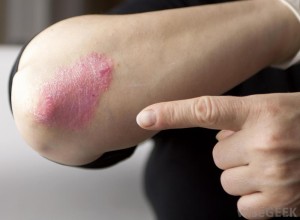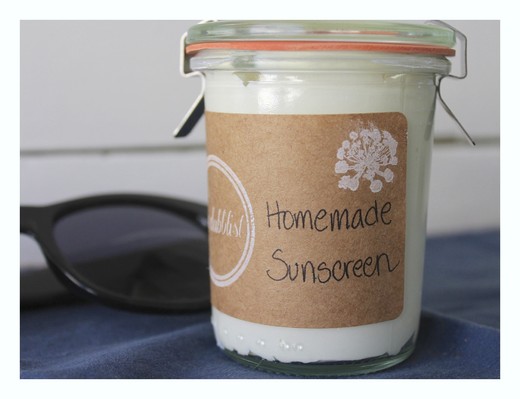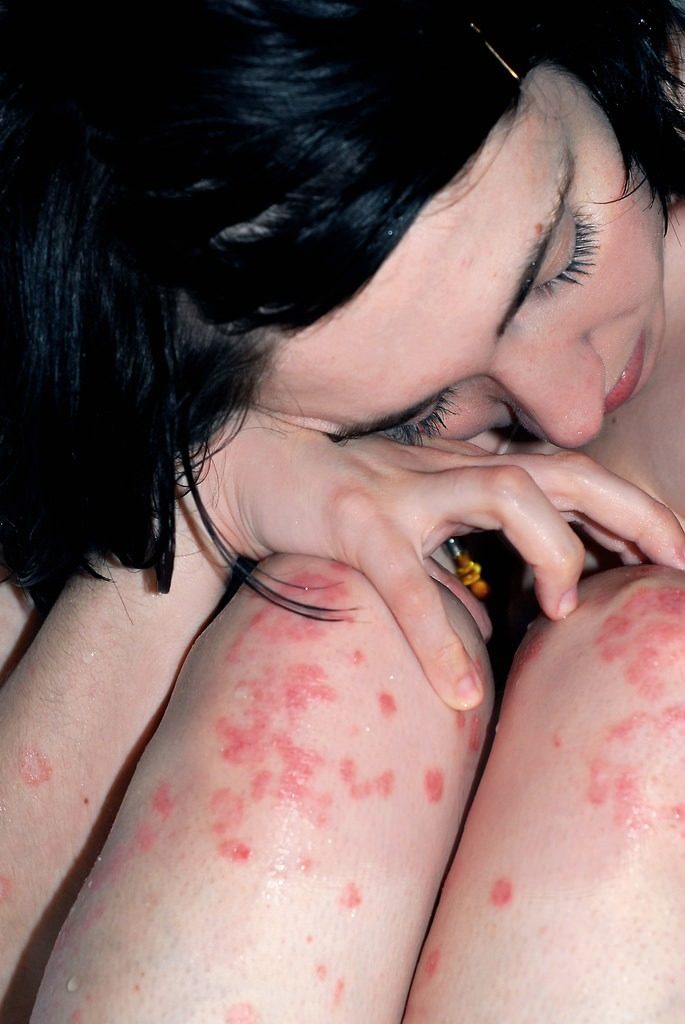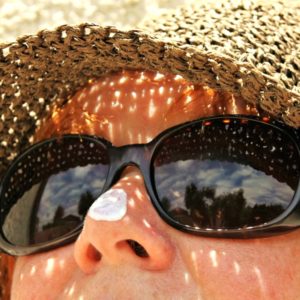-
Book Online Now - Acupuncture Solutions3900 Pebblecreek Ct #101
Plano, TX 75023972-612-4900 - 6501 Wesley St #A-1
Greenville, TX 75402903-213-3679 Learn more about…
#autumn #balance #behappy #fall #familytime #germs #healthlyliving #healthyskin #immunesystem #organs #psoriasis #seasons #sunscreen #thinkpositive acupressure acupuncture allergies anxiety coronavirus covid-19 depression diet digestion energy exercise headaches health heart herbs kidneys liver lungs meditation migraines nutrition pain pms qi sleep spring stress summer tcm Traditional Chinese Medicine winter
Skin
Don’t Forget the Sunscreen
Natural Sunscreen – A Necessity
There are pros and cons all over the internet world regarding over the counter Sunscreen and homemade DIY sunscreen. There are several things to consider when deciding whether to make your own sunscreen, here are just a few that come to mind:
- You can pronounce the ingredients (and know what they are)
- Saves a lot of money
- Doesn’t put dangerous chemicals on your skin which may absorb into the body
- It does leave a slightly white film
- The SPF is lower than the over-the-counter product, so re-apply often.
There are several and easy ways to make effective and natural homemade sunscreen. Here is one quick and relatively easy recipe:
Natural Ingredients:
1 oz. Coconut oil
8 oz. Shea butter
1 oz. Jojoba oil or sunflower oil
30 drops ( 15 of each) Eucalyptus and lavender essential oils
1 oz Vitamin E oil
Zinc oxide
The amount of zinc oxide you choose to use will determine the amount of SPF in your sunscreen. For more than SPF 20, use 20% zinc oxide, for SPF 12-19 use 15% zinc oxide.
Directions: First step is to combine coconut oil, shea butter and jojoba/sesame/sunflower oil into a Pyrex measuring up. Next, make a double boiler by placing the Pyrex inside a pot filled with 2-3 inches of water. Heat on low until the shea butter is melted. Remove from double boiler and let cool. After cooled, wear a mask to cover your nose and mouth when you measure out the zinc oxide to avoid inhaling fine particles. Add the zinc oxide, Vitamin E oil and essential oils to the original mixture. Stir until ingredients are mixed. The last step is to pour the mixture into a dark jar and refrigerate.
Homemade sunscreen can last for around 6 months and should be refrigerated. Apply generously to skin and reapply every few hours while outside during periods of sun exposure.
Sources:
http://bit.ly/28CFSal
http://bit.ly/1tuVyNa
Acupuncture Helps Psoriasis
5 Alternative Treatments and Home Remedies for Psoriasis
For people with psoriasis, suffering from painful symptoms like inflamed, flaking and red skin is not pleasant. The chronic skin condition is due to an overactive immune system that can be triggered by a number of internal and external factors. Many Western treatments include steroid creams and oral medications that come with a slew of unwanted side effects.
Below are alternative treatments that are safe and natural and can help reduce symptoms of psoriasis, leading you back to better health.
1. Herbal Remedies
● Aloe Vera: The gel from this cactus plant can be used generously on your skin to reduce redness and scaling caused by psoriasis. Aloe vera can be found in almost any grocery or health store.
● Tea Tree Oil: Tea tree oil is thought to have antiseptic properties. It can sooth irritated skin or scalp and can be applied daily.
● Turmeric: Turmeric has strong anti-inflammatory and antioxidant properties. Because of this, turmeric has been found to reduce psoriasis and psoriatic arthritis flares. Turmeric can be found in pill form as well as powder form to be added to food.
● Dead Sea Salts: Soaking in a bath with Dead Sea salts or Epsom salts can remove scaly skin and reduce itching. It is recommended that you use warm water and stay in the tub for 15 minutes.
2. Mindfulness/Meditation
- Mindfulness and meditation practices have been found to be effective in people suffering with chronic pain like psoriasis.
- Meditation is the practice of focusing your attention on the moment and ridding yourself of all external thoughts you may be having. This can lead to a state of relaxation and calmness, bringing balance to your body and mind.
- Mindfulness, which is practiced in meditation, includes becoming completely aware of your body, externally and internally. This can be a seated meditation that is focused on awareness of mind, body and senses.
3. Exercise
Not only is exercise important to maintain overall health and wellness, it is especially beneficial for people with psoriasis. Because people with psoriasis have an increased risk of heart disease and type 2 diabetes, regular exercise can prove very helpful. Many find it hard to exercise because of the chronic pain associated with psoriasis. Exercise programs in the water prove to be an effective alternative that is easier on the body and still allows you to build endurance and strength. Other simple ways to fit more exercise into your day include short walks, taking the stairs and stretching.
4. Massage
Seeing a licensed massage therapist can help reduce symptoms and pain. Massage promotes the function of muscle and connective tissue and can increase relaxation and circulation in the body.
5. Acupuncture
Acupuncture has been proven to be effective in minimizing chronic pain in patients. Acupuncture takes a holistic approach with the body and symptoms you may be experiencing. By returning the body to its natural flow, acupuncture can help reduce the intensity of symptoms of psoriasis.
Home Remedies:
● Soak a towel in cold milk and apply to affected area to relieve itching.
● Add ½ cup ground oatmeal into a warm bath.
● Rub the affected area with the inner side of a banana peel.
● Apply aloe vera gel to affected area.
● Cut several fresh willow branches into 3-inch stems and place in a pot with plenty of water. Bring to a boil, then simmer until water becomes black. Wash affected areas with the water three times daily.
● Slice 15 water chestnuts and soak in 3 oz. of rice vinegar crush and store in a sealed jar. Apply the paste to affected area and cover with gauze. Change daily.
Sources:
https://www.psoriasis.org/about-psoriasis
Save Your Summertime Skin
Save Your Summertime Skin
Now is the time of year when the sun becomes irresistible. As tempting as it is to spend as much time as possible in the warmth of the sun, there are a few precautions to take to protect your skin from harmful rays.
Our skin is the largest organ in the body. It reflects our health and age. Today, there’s much concern about sunbathing leading to an increase in skin damage and skin cancer.
Excessive exposure to ultraviolet rays can increase the production of free radicals that can adversely affect the integrity of collagen in the skin. Over time, our skin becomes wrinkled, cracked, aged, and brittle. For smokers, the effects are multiplied.
Research suggests that skin cancer is cumulative over a lifetime. It begins with overexposure and serious sunburns during childhood.
We can’t live without the sun. Our bodies require sunlight in order to manufacture Vitamin D needed for calcium absorption, among other things. So, we shouldn’t hide from our shining star.
Here are a few helpful tips and precautions to take when you’re soaking in the sun this summer.
Use sunscreen – Choose a sunscreen with a high SPF number for greater protection. Apply it onto your skin 15 minutes before you go outside. Don’t forget your nose, ears, and neck.
Time is key – Avoid sun exposure when the sun is at its highest peak in the sky, typically from about 11:00 am – 4:00 pm.
Gear up – Wear a hat with a wide brim, t-shirt, and sunglasses that filter ultraviolet rays.
Drink up – By keeping your body hydrated you can avoid dehydration and provide moisture for the skin to prevent dryness, cracking, and aging.
Pop a pill – Vitamins such as A, E, and some antioxidants help prevent skin damage from the inside. Cod Liver oil and Flaxseed oil have also been used to support skin health.
Brush it off – Before you take a shower, use a dry skin brush. This can open pores and slough off dead skin, allowing your skin to breathe easily and work more efficiently.
Keep healthy – Some medications we take may have reactions and side effects when we’re exposed to sunlight. Acupuncture may be able to provide an alternative to these medications, keeping you healthy, safely and naturally.
If you want to enjoy the sun this summer season and not worry later, practice good sun sense.
You and your skin deserve it!
5 Alternative Treatments and Home Remedies for Psoriasis
 For people with psoriasis, suffering from painful symptoms like inflamed, flaking and red skin is not pleasant. The chronic skin condition is due to an overactive immune system that can be triggered by a number of internal and external factors. Many Western treatments include steroid creams and oral medications that come with a slew of unwanted side effects.
For people with psoriasis, suffering from painful symptoms like inflamed, flaking and red skin is not pleasant. The chronic skin condition is due to an overactive immune system that can be triggered by a number of internal and external factors. Many Western treatments include steroid creams and oral medications that come with a slew of unwanted side effects.
Below are alternative treatments that are safe and natural and can help reduce symptoms of psoriasis, leading you back to better health.
1. Herbal Remedies
● Aloe Vera: The gel from this cactus plant can be used generously on your skin to reduce redness and scaling caused by psoriasis. Aloe vera can be found in almost any grocery or health store.
● Tea Tree Oil: Tea tree oil is thought to have antiseptic properties. It can sooth irritated skin or scalp and can be applied daily.
● Turmeric: Turmeric has strong anti-inflammatory and antioxidant properties. Because of this, turmeric has been found to reduce psoriasis and psoriatic arthritis flares. Turmeric can be found in pill form as well as powder form to be added to food.
● Dead Sea Salts: Soaking in a bath with Dead Sea salts or Epsom salts can remove scaly skin and reduce itching. It is recommended that you use warm water and stay in the tub for 15 minutes.
2. Mindfulness/Meditation
Mindfulness and meditation practices have been found to be effective in people suffering with chronic pain like psoriasis.
Meditation is the practice of focusing your attention on the moment and ridding yourself of all external thoughts you may be having. This can lead to a state of relaxation and calmness, bringing balance to your body and mind.
Mindfulness, which is practiced in meditation, includes becoming completely aware of your body, externally and internally. This can be a seated meditation that is focused on awareness of mind, body and senses.
3. Exercise
Not only is exercise important to maintain overall health and wellness, it is especially beneficial for people with psoriasis.
Because people with psoriasis have an increased risk of heart disease and type 2 diabetes, regular exercise can prove very helpful.
Many find it hard to exercise because of the chronic pain associated with psoriasis. Exercise programs in the water prove to be an effective alternative that is easier on the body and still allows you to build endurance and strength.
Other simple ways to fit more exercise into your day include short walks, taking the stairs and stretching.
4. Massage
Seeing a licensed massage therapist can help reduce symptoms and pain. Massage promotes the function of muscle and connective tissue and can increase relaxation and circulation in the body.
5. Acupuncture
Acupuncture has been proven to be effective in minimizing chronic pain in patients. Acupuncture takes a holistic approach with the body and symptoms you may be experiencing. By returning the body to its natural flow, acupuncture can help reduce the intensity of symptoms of psoriasis.
Home Remedies:
● Soak a towel in cold milk and apply to affected area to relieve itching.
● Add ½ cup ground oatmeal into a warm bath.
● Rub the affected area with the inner side of a banana peel.
● Apply aloe vera gel to affected area.
● Cut several fresh willow branches into 3-inch stems and place in a pot with plenty of water. Bring to a boil, then simmer until water becomes black. Wash affected areas with the water three times daily.
● Slice 15 water chestnuts and soak in 3 oz. of rice vinegar crush and store in a sealed jar. Apply the paste to affected area and cover with gauze. Change daily.
Sources:
https://www.psoriasis.org/about-psoriasis
Can Acupuncture Effectively Treat Psoriasis?
Affecting approximately 125 million people – or about 2-3% of the global population – psoriasis is one of the most common autoimmune diseases in the world. It’s characterized by the chronic formation of skin lesions, red patches, papules and plaque. These formations may appear in localized areas of the body or throughout the entire body, depending on an individual’s condition.
Psoriasis is known to trigger intense bouts of itching. The sensation can be so intense that it causes the individual to scratch infection-prone sores into his or her skin. Regardless of how bad it itches, you should never scratch your psoriasis, as it will only make the condition worse.
As with most autoimmune diseases and disorders, psoriasis is caused by an overactive immune system. The immune system is responsible for fending off potentially harmful viral and bacterial infections. It does this by producing key inflammatory hormones. Normally, it produces the right amount of these hormones, but there are times when it produces too much; resulting in conditions such as psoriasis.
The good news is that acupuncture may offer relief of psoriasis and its related symptoms. Acupuncture can have very positive effects on the immune system. When we are sick or dealing with chronic illness, our bodies are not able to function properly. This can be due to the body’s natural energy being restricted or blocked. Acupuncture works by treating the whole body and releasing any abnormalities through acupuncture points. By doing so, the body is able to function as it should and the immune system is strengthened because of this.
With psoriasis, the Spleen 10 xue hai acupuncture point is a popular choice because it targets the immune system.
One study found acupuncture to be effective at treating psoriasis, particularly when western medicine has been exhausted. “Our experience indicates that acupuncture is induced an effective therapeutic modality for psoriasis, particularly when the western medical management is unsuccessful. We speculated about the possible involvement of the cutaneous reticuloendothelial system in the clearance of the skin lesions,” wrote the study’s researchers.
Give me a call today to learn how you can get back on track to better health!
Sources: http://www.ncbi.nlm.nih.gov/pubmed/1357925





